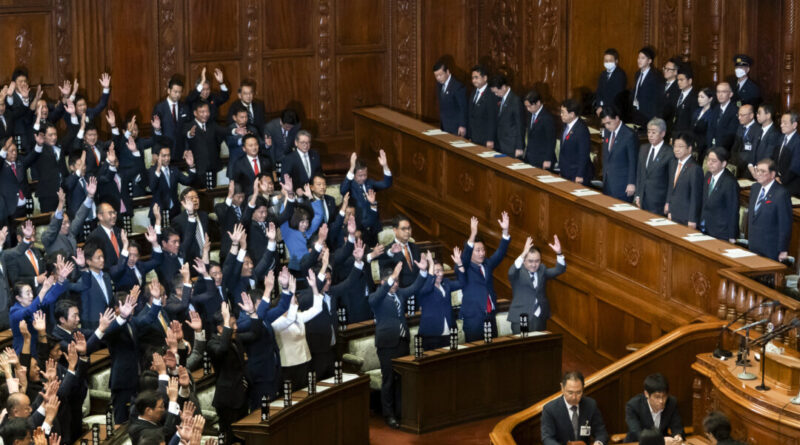Japan’s Future Uncertain as Ruling Bloc Loses Majority for First Time in Over a Decade
Prime Minister Shigeru Ishiba expressed that voters have given a ‘harsh verdict’ on the LDP.
Japan entered a state of political uncertainty following snap elections that resulted in the ruling coalition, led by new Prime Minister Shigeru Ishiba, losing its parliamentary majority for the first time in 15 years.
The main opposition party, the Constitutional Democratic Party of Japan (CDPJ), saw a significant increase by winning 148 seats, up from the previous 98.
This outcome presents a major challenge for Ishiba, who now needs to find a third coalition partner to establish a majority.
“We may face tough feedback from the public in the Upper House election, so we must take it seriously and establish the political reform headquarters immediately,” he mentioned.
The yen fell to a three-month low against the U.S. dollar on Monday, dropping by one percent to 153.88 per dollar in the Asia session following LDP’s failure to secure a majority.
Ishiba called for snap elections after being elected earlier this month to replace Fumio Kishida, who resigned due to public dissatisfaction with the government’s handling of rising inflation and a fundraising scandal.
The LDP has been the governing party of Japan for most of its post-war history, and the recent election outcome marked the party’s worst performance since briefly losing power in 2009 to the Democratic Party of Japan (DPJ), a predecessor of the CDPJ.
The DPJ’s handling of the 2011 earthquake and tsunami, which greatly impacted the Fukushima nuclear plant, led to the LDP winning the 2012 election under the leadership of the late Shinzo Abe. Abe, the longest-serving prime minister, was assassinated in 2022 following the end of his tenure in 2020.
The Northern Territories are four islands off the coast of Hokkaido that were ceded to the Soviet Union—and subsequently inherited by Russia—after the war.
Abe aimed to promote joint economic activities on the islands with Russia, but Ishiba expressed skepticism that such efforts would lead to their return, which has long been a Japanese demand.
Chris Summers and Reuters contributed to this report.





